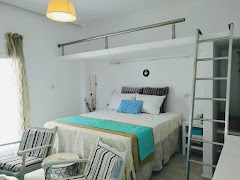Prices are in euro (valid in Hania). All
ingredients are Greek or locally sourced; those marked with * are
considered frugal here because they are cheap and/or people have their
own supplies.
Summer's
bountiful harvests last you through the winter, but when spring comes,
you find your coffers are close to empty empty. Spring is a funny time of year for
fresh produce: there's not much around, except for leafy greens and
herbs, which makes it a good time to make kalitsounia. It's much cheaper, if somewhat time-consuming, to make your
own kalitsounia from scratch, and spring is the best time to make them,
because of the abundance of wild aromatic greens found all over the countryside at this time of year.
Kalitsounia, little pies filled with cheese and/or greens, are a Cretan delicacy, found in different forms and with a
variety of fillings throughout the island, but they are also found in
other Greek islands, notably those where there was a heavy Venetian
influence. I recall a beautiful 3-day holiday spent in Kithira last year at this time, where kalitsounia were also being served in the taverna we frequented every night.
These little pies are about the size of your hand, made with not-so-thick, not-so-thin filo pastry. My mother used to make them in New Zealand for all our feasts and parties, and I now make them in regular batches, freezing them too, because it's not easy to make them on a regular basis. In all honesty, they are a little fiddly to make, because of the pastry, but you can buy this if you can't be bothered rolling out your own; you can also buy ready-to-cook kalitsounia from the supermarket and ready-to-eat kalitsounia from snack bars, but these options are not at all very frugal these days.
Making kalitsounia can be a random and somewhat spontaneous activity. It often involves using whatever ingredients you have at hand, which is why I can't give exact ingredients. Unlike with a pie, where you can roll out the pastry as thickly as you want, and you can fill it as much as you like, with kalitsounia you may find that you end up with extra pastry or extra filling left over; I prefer the former, because I don't like to make the latter, and I can always find something to fill extra pastry with.
Kalitsounia can be fried or baked. It all depends on personal preference. To cook them as cheaply as possible, I bake them in a wood-fired oven in the winter, or I fry them (which means not heating up the oven and using too much power) in warmer weather. Kalitsounia are a perfect snack meal. These little pasties form my family's morning, afternoon and/or evening snacks, and I often put them in the kids' lunch boxes for their school meals.
To make kalitsounia,
you need:
some pastry (half a kilo of flour makes about 20 medium-sized kalitsounia: ~50 cents)
some fresh leafy greens (spinach, sorrel, swiss chard, even cabbage and leeks - including the green tops - will do: half a kilo of greens is enough for pastry made with half a kilo of flour - ~50 cents)
some aromatic herbs*
an onion*
a little bit of semolina* (for half a kilo of flour, about 3-4 tablespoons will be enough)
salt and pepper
some mizithra or other soft creamy cheese (~€1 - optional: kalitsounia can be vegan, and therefore even more frugal)
some olive oil* (about 4-5 tablespoons)
an egg for brushing over the pastry* (only if you bake them)
 |
| I don't use much bench space when rolling out pastry - that way, I make less mess, too. |
Wash your greens, and dry them as much as you can (this is important). Chop them finely and mix them together, with the onion and seasonings. Heat the oil in a small pan and add the greens mixture. Cook the greens until they wilt (about 5 minutes). Set aside, and allow the greens to cool. Drain off any excess liquid. Mix in the semolina (and the cheese, if you are using any).
Make some pastry. Roll it out not too thinly, and not too thickly. Using a small saucer as a guide, cut it in rounds (if frying) or squares (for either frying or baking). Place a tablespoon of filling on one half of the round pastry (or in the middle of the square) and fold it up over the sides, sealing the pastry with some water.
 |
| To stop the pastry from sticking, I use some plastic sheeting in between the rounds. |
If you are baking them, place them on a well-oiled baking tray, and brush them with beaten egg. Bake for 30 minutes in a moderate oven, preferably on the lowest rack. If you are frying them, heat some olive oil in a frying pan, and fry them until the pastry is cooked, turning once to cook both sides.
This is a wholly Cretan delicacy, and one that people never ever tire of eating.
You will get about 20 kalitsounia using half a kilo of flour - 20 vegan kalitsounia cost less than €2; 20 vegetarian kalitsounia cost about €3.
©All Rights Reserved/Organically
cooked. No part of this blog may be reproduced and/or copied by any
means without prior consent from Maria Verivaki.




































